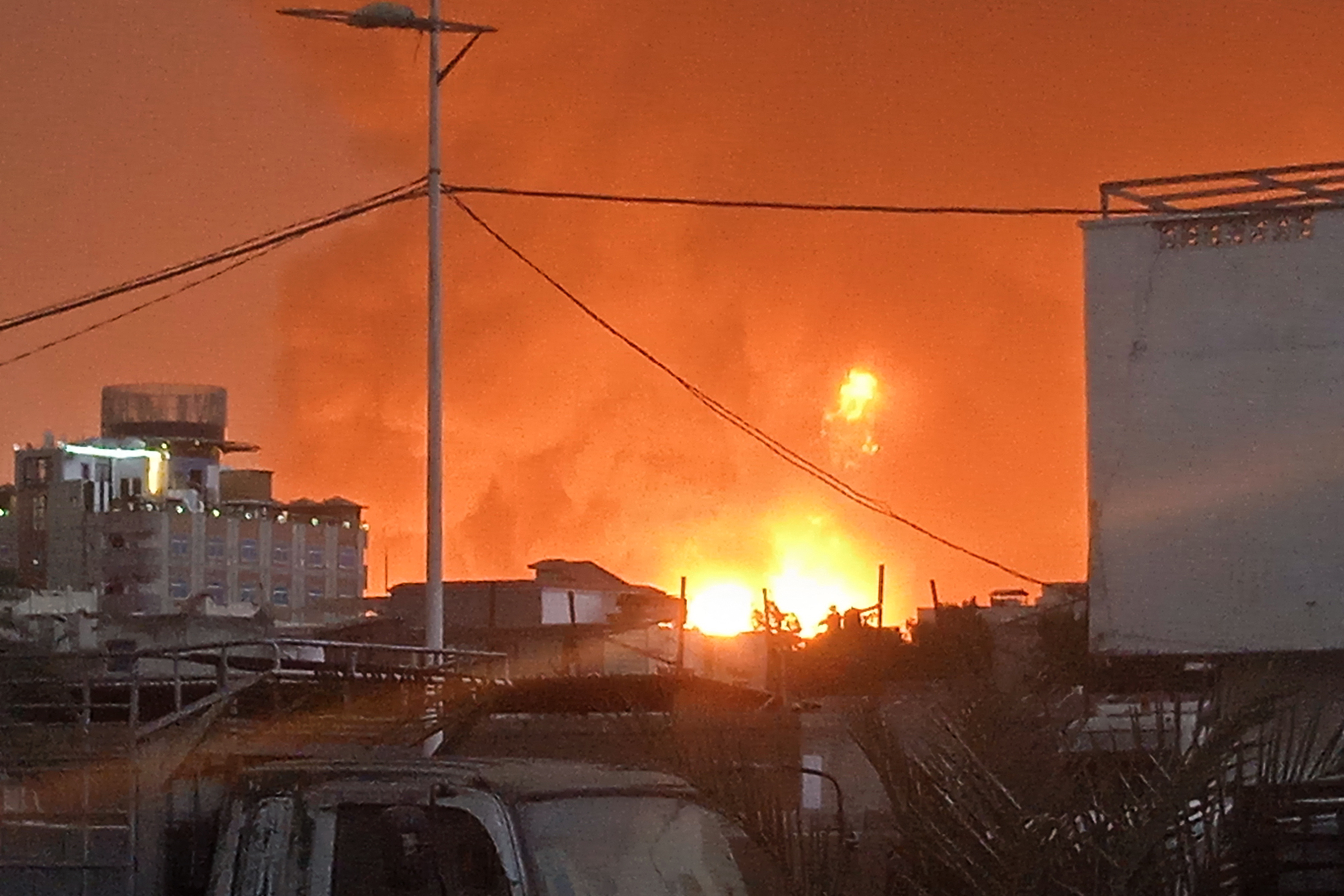
The Israeli military on Monday ordered the evacuation of part of an area in the Gaza Strip it has designated a humanitarian zone.
The military said it is planning to begin an operation against Hamas militants who have embedded themselves in the area and used it to launch rockets toward Israel. The area includes the eastern part of the Muwasi humanitarian zone, which is located in the southern Gaza Strip.
Many Palestinians have been uprooted multiple times in search of safety during Israeli’s punishing air and ground campaign.
Earlier this month, Israel said it estimates at least 1.8 million Palestinians are now in the humanitarian zone it declared covering a stretch of about 14 kilometers (8.6 miles) along the Mediterranean. Much of that area is now blanketed with tent camps that lack sanitation and medical facilities and have limited access to aid, U.N. and humanitarian groups say. Families live in the midst of mountains of trash and streams contaminated by sewage.
Get top local stories in San Diego delivered to you every morning. >Sign up for NBC San Diego's News Headlines newsletter.
The announcement came during delicate negotiations seeking a cease-fire in Gaza, with U.S. and Israeli officials expressing hope that an agreement is closer than ever. A negotiating team will be sent to continue talks on Thursday, Prime Minister Benjamin Netanyahu’s office said. Egypt, Qatar and the United States are continuing to push Israel and Hamas toward a phased cease-fire deal that would stop the fighting and free the hostages.
Netanyahu left Monday morning on a much-anticipated trip to the United States to meet with President Joe Biden, who announced Sunday that he will not seek another term, and address Congress.
Netanyahu said that regardless of who becomes the next U.S. president, “our enemies must know that Israel and the United States stand together tomorrow and always.” He said he will thank Biden for more than 40 years of friendship, while also pushing him for more support on certain issues.
Also Monday, Israeli police said a Canadian citizen was killed after threatening Israeli security forces with a knife near the Gaza border.
The Israeli military said the man drove to the entrance of an Israeli town close to the border, left his vehicle and approached the security forces with a knife. The forces opened fire and killed the man. There were no other injuries.
The attack took place at the entrance of the Israeli town of Netiv HaAsara, which is just 300 meters (yards) north of the Gaza border. On Oct. 7, Netiv HaAsara was attacked and 20 residents were killed after gunmen passed over the concrete border wall using paragliders, according to Israeli military officials.
Israel has experienced a wave of stabbing attacks across the country during the nine-month war in Gaza.
The war in Gaza has killed more than 38,900 people, according to the territory’s Health Ministry, which doesn’t distinguish between combatants and civilians in its count. The war began with an assault by Hamas militants on southern Israel on Oct. 7 that killed 1,200 people, most of them civilians, and took about 250 hostages. About 120 remain held, about a third of them believed to be dead, according to Israeli authorities.
The Israeli military said on Monday that it is continuing to operate in central and southern Gaza. On Sunday, Israeli airstrikes killed at least 15 people, including women and children, in Gaza, according to hospital officials and a body count by an Associated Press journalist.
The already precarious humanitarian conditions inside besieged Gaza have worsened with the discovery of the polio virus as water and sanitation services have deteriorated for the territory’s 2.3 million people, most of them displaced. Traces of the virus were found in sewage samples in Gaza. The World Health Organization has said no one has been treated for symptoms caused by the disease.
Israel’s military said soldiers would be vaccinated and it would work with organizations to bring in vaccines for Palestinians.
Netanyahu has vowed to wipe out Hamas’ military and governing capabilities and secure the return of the remaining hostages. Families of hostages and thousands of other Israelis have held weekly demonstrations to urge the prime minister to reach a cease-fire deal that would bring their loved ones home.
Lidman reported from Tel Aviv, Israel.
__



